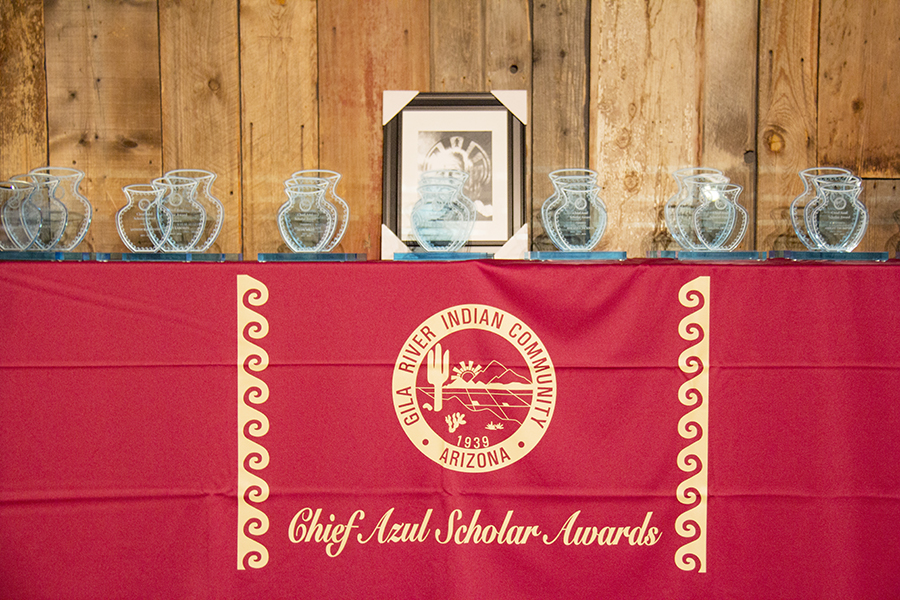Chief Azul Scholar Awards Program and Citizenship Awards deadline is March 31
March 17, 2017
Thomas R. Throssell
Gila River Indian News
The Gila River Indian Community Tribal Education Department (TED) wants Community students to know that time is running out to hand in applications for the Chief Azul Scholar Awards Program and the Citizenship Award, which are both due March 31.
Each award requires different attributes for applying students, with the Chief Azul Scholar Award focusing on academic achievement and the Citizenship Award looking for students who perform well in school and possess a good character.
Chief Azul Scholar Award Program
The Chief Azul Scholar Award is to recognize the academic achievements of students from the fourth through twelfth grades, and undergraduate students, in order to motivate the Community’s youth to pursue higher education.
Schools may nominate two students from each grade level, one male and female, which will be reviewed by a committee organized by TED. After the committee reviews all applicants they will select the top three students from each grade level, who will then be chosen as the Chief Azul Scholar or receive an honorable mention.
Anthony Gray, TED Cultural Coordinator, said the Chief Azul Scholar Award is given to Community students who personify Chief Azul’s leadership and educational ability. He said that Azul led the tribe during a turbulent time, through Mexican jurisdiction, the Gadsden Purchase, and keeping the Gila River Indian Community from being relocated to Oklahoma.
“Out of that, we want students to be leaders…in his example,” said Gray. “His work kept us where we are, his work kept us who we are, his work helped fight for the water rights. We want [our students] to be those future lawyers, those future academically trained people who help us stay who we are, [and] where we are,” he said.
Citizenship Award
The Citizenship Award recognizes well performing GRIC high school seniors who possess a friendly demeanor, positive attitude, and represent the ideal Community member. Only 15 high school twelfth graders will be selected for the award.
While the Chief Azul Scholar Award is based off of academic success, the Citizenship Award is more focused on a student’s behavior and participation in extracurricular activities and school life.
“It doesn’t necessarily have to be a high achieving straight A student,” said TED Assistant Director Fredrick Poitra. “It could be somebody who maybe had a rough time, but persevered and came out and was successful at some point. That definition of success for the Citizenship Award is different for each student and their story,” he said.
The 15 winners of the Citizenship Award will receive an all-expenses paid one-week trip to Washington D.C., where chaperones will take them to some of the most famous monuments in the United States.
TED Director Isaac Salcido, said some of the popular locations the sutdents will visit on their trip include Capitol Hill, the Smithsonian, and the American Indian History museum.
“I think this is an opportunity for those students who do participate, who do engage in the school experience, who do understand the idea of helping each other,” said Salcido. “I think it is a really opportunity to play up those role models that we have amongst our kids in the Community.”
Salcido added that because competition is high, it is important for students who have accomplished extraordinary goals to make that they put that information on their application form.
“If they are members of the honor society, if they are members of the honor roll, that they provide that type of documentation, so it can support their application,” Salcido said. “If they have received any other types of awards or scholarships from community clubs, that they put it down so that it can be verified and it can be taken into account.”
For more information about either the Chief Azul Scholar Award or the Citizenship Award, pick up application forms at your local district service center or call the Tribal Education Department at (520) 562-3662 and ask to speak to Kenyen Thompson or email Kenyen.thompson@gric.nsn.us

